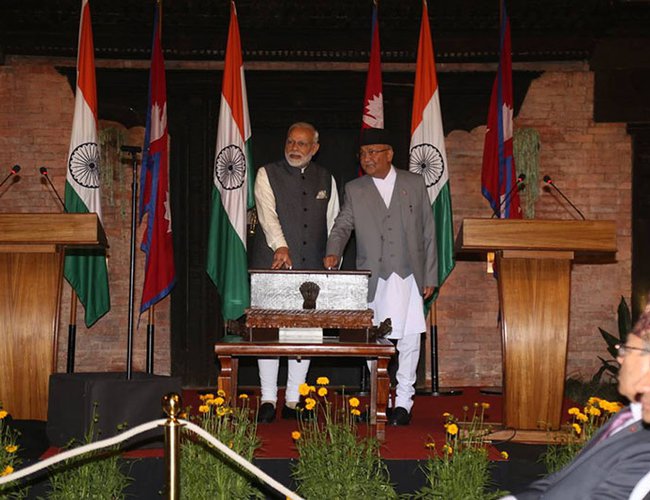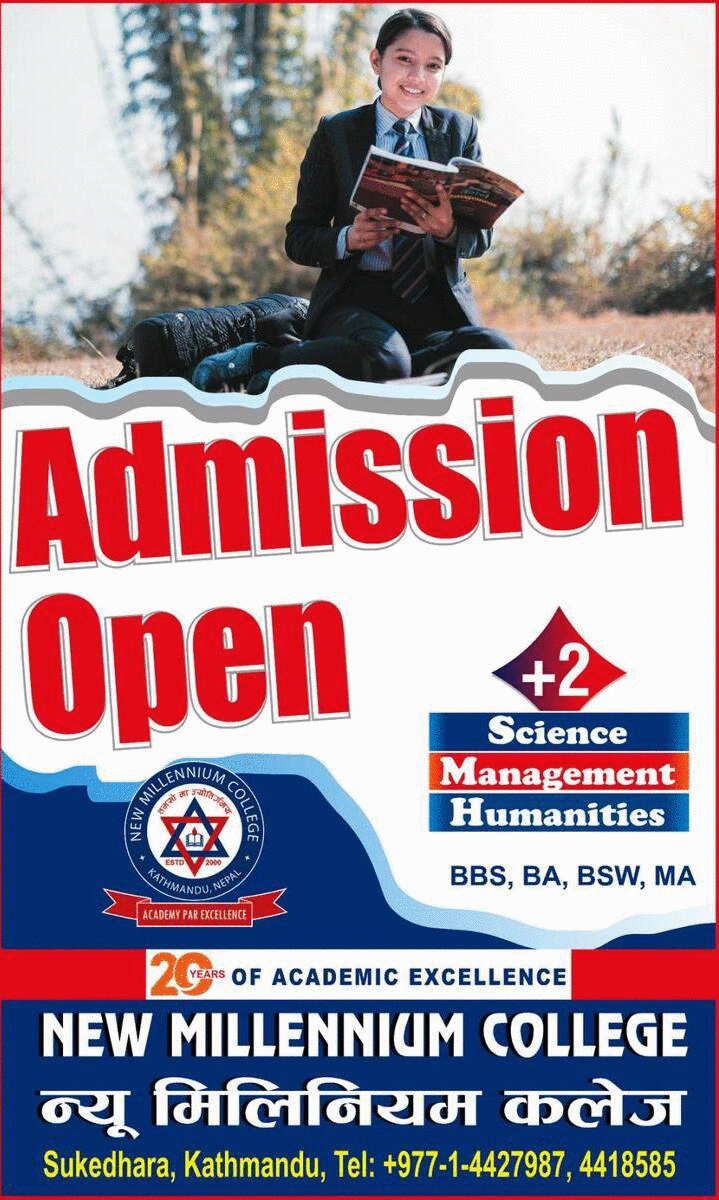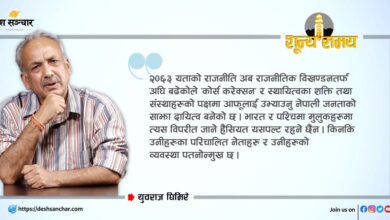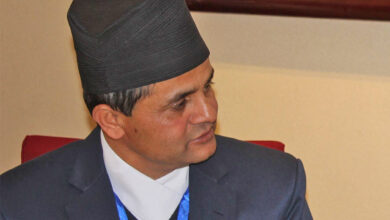Chilled by the proclamation of new map by Nepal, Nepal-India relations seem to be moving for restoration. The telephone conversations between the two prime ministers and the proposed first formal meeting between the two countries is likely to thaw the ice
Aug. 15, 2020
“Relations between Nepal and India are nurtured and enriched by the noble ideals, values and principles that are common to our cultural heritage. People as inheritors of these valued traditions provide continuity infusing timelessness in our relationship,” said late King Birendra in his formal speech in January 1999 in India in reply to a speech in a banquet.
The personal whims, likes or dislikes do have no impacts on relations between Nepal and India, which share common civilization, culture, religions and values. As King late Birendra said values and traditions provide continuity.
After the unilateral publication of new Nepal’s map by Nepal incorporating the territory Kalapani and Limpuiyadhura, Nepal-India official relations reached to lowest level. Prime Minister K.P. Sharma Oli’s undiplomatic statements and his individual remarks India’s core religious matter have further worsened the state to state relations.
In one whim, PM Oli had made every effort to destroy the relations. Suddenly, Prime Minister Oli’s tone has changed and he called Indian Prime Minister Narendra Modi to greet on the occasion of India’s 74th Independent Day.
Prime Minister Oli has greeted the Government and People of India on the and conveyed congratulations for India’s recent election as a non-permanent member of the UN Security Council.
Indian Prime Minister Narendra Modi reciprocated to PM Oli in their 15 minutes telephone conversation. The leaders expressed mutual solidarity in the context of the efforts being made to minimize the impact of the COVID-19 pandemic in both countries. Indian Prime Minister offered India’s continued support to Nepal in this regard.

Prime Minister thanked the PM Oli for his telephone call and recalled the civilization and cultural links that India and Nepal share.
PM Oli recalled his earlier conversation with Prime Minister Modi on 10 April 2020 and appreciated Prime Minister Modi’s renewed priority to neighborhood as spelt out in today’s Independence Day address. The Prime Minister of Nepal looked forward to meaningful bilateral cooperation.
The two Prime Ministers exchanged views on the latest efforts in the fight against COVID-19 and agreed to work together in this area. While underlining the need for early development of anti-COVID vaccine, PM Oli expressed the hope that scientists around the world, including in India, would be able to develop it that will contribute to control and prevent the disease from spreading further.
The two Prime Ministers agreed to continue discussions on bilateral matters in the future. Although he is unpredictable, Oli’s call helps to thaw in the relations.
However, this political stalemate and dispute at formal level has had little impact at the people-to-people level. As King late Birendra said the ties of the two peoples remained cordial and strong.
Along with telephone conversations, Nepal and India are meeting on August 18 to discuss development issues which are directly related to the life and prosperity of Nepalese people.
The meeting is likely to take place via videoconference in view of the Covid-19 pandemic. The meeting will take place in Kathmandu where Nepal’s Foreign Secretary Shankar Das Bairagi will lead a team of officials while the Indian side will be led by Ambassador Vinay Mohan Kwatra.
India is building roads in the Terai region, helping Nepal in its post-earthquake reconstruction work, building railway lines, a police training academy, a polytechnic college, an oil pipeline and border check posts. The government has allocated Rs 800 core in this year’s budget for projects in Nepal.
The meeting — of the joint oversight mechanism to review projects established in 2016, and which last met in July 2019 — assumes significance since Indian and Nepalese officials have not met to discuss the Kalapani border dispute due to the pandemic.
The boundary dispute between India and Nepal came to the fore last November when India published its new map following the bifurcation of Jammu and Kashmir into two Union Territories and the end of its special status under Article 370.
Kathmandu had proposed talks to discuss the boundary issue. It was tentatively scheduled for March, but had to be put off due to the Covid-19 outbreak. Nepal suggested a videoconference, and then claimed that New Delhi was dragging its feet on the proposal.
India’s inauguration this May of a new road from Dharchula to Lipulekh on the Mansarovar Yatra route angered Oli government which came out with a new map of Nepal, adding to it an area of 370 sq km at the tri-junction of Nepal, India and China (Tibet) which India maintains is its territory.
A Constitution amendment Bill was passed by Nepal’s parliament to legitimize the alteration or addition of Kalapani, Lipulekh and Limpiyadhura to the country’s new map.
The passage of the Bill and the new map led to breakdown of communication between the two countries. The last meeting between Ambassador Kwatra and Nepal’s Foreign minister Pradeep Gyawali took place on May 11, when the Nepalese side had protested the new road via Lipulekh. India though has been sending medical supplies to Nepal, including 10 ventilators.
With telephone conversation, the next meeting is the first opportunity for top officials from both sides to meet and discuss Indian government-funded projects in Nepal. Although it is just a routine meeting, it will bring the officials of both the countries in the table.
India has maintained that it is willing to hold talks with Nepal on the boundary dispute if the Oli government creates a “conducive atmosphere” and “positive situation”.
Although it was a routine meeting, it will help to open line of communication between the two countries.
“The extensive interaction and contacts that exist between our countries at the people-to-people level have helped to foster deeper understanding and appreciation of each other’s aspirations. In other words, securely founded, the bonds that tie our two peoples are barely touched by the vicissitudes of nations go through over time,” to quote former King late Birendra.




